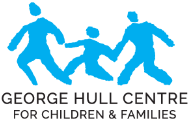
Childhood trauma includes events such as experiencing maltreatment (physical, sexual and emotional abuse), witnessing domestic violence, community violence, abandonment, neglect, loss of a loved one, discrimination, and bullying.
Typically, these events are associated with intense feelings of fear, helplessness, loss of control and shame.
As many as two thirds of children experience a traumatic event prior to age 16, and many children exposed to one traumatic event have also been exposed to additional adverse experiences.
Approximately 85% of children involved in the child welfare system have been exposed to a traumatic event.Traumatic experiences can produce physical, psychological and emotional reactions that last a lifetime.
Exposure to a traumatic event can interfere with brain development for children and youth, and it is a risk factor for a number of potentially maladaptive outcomes including emotional, cognitive, behavioural, and social impairment.
Without the appropriate intervention, traumatic childhood experiences can result in significant and enduring adult mental health problems.

During this series, Speech-language pathologists and Assistants, as well as Communicative Disorders Assistants will learn about trauma-informed care and how to apply it to speech, language and communication work with young children.

The certification program provides an integrated approach to the assessment and treatment of trauma.
© 2025 coursetakers.com All Rights Reserved. Terms and Conditions of use | Privacy Policy